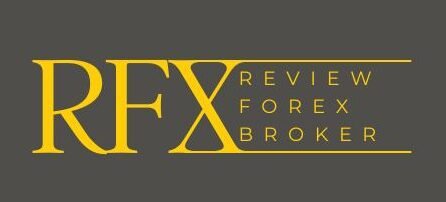The forex market is renowned for its volatility and potential for profit, but it is also clouded by various myths and misconceptions. One of the most persistent concerns among traders is whether forex brokers can manipulate trades. Understanding this issue is essential for anyone looking to navigate the forex landscape successfully. In this blog, we will debunk common myths and present the facts surrounding forex trade manipulation.
Myth 1: All Forex Brokers Manipulate Trades
One of the most pervasive myths is that all forex brokers engage in trade manipulation. While it’s true that some unethical brokers may attempt to manipulate trades, the majority of reputable and regulated brokers operate with integrity. Regulated brokers are subject to strict oversight and must adhere to guidelines that prohibit manipulative practices.
Fact: The majority of forex brokers follow ethical practices and are regulated by recognized authorities. Always choose brokers with transparent operations and regulatory compliance to minimize the risk of manipulation.
Myth 2: Brokers Control Market Prices
Another common belief is that forex brokers have the power to control market prices. This idea stems from the misconception that brokers can influence currency rates by manipulating their trading platforms. In reality, forex prices are determined by the broader market based on supply and demand dynamics, geopolitical events, economic indicators, and other factors.
Fact: Brokers do not control market prices. They act as intermediaries, providing access to the interbank market, where prices are set by numerous global financial institutions and market participants.
Myth 3: Brokers Can Stop Losses from Executing
Many traders worry that brokers can prevent their stop-loss orders from executing, effectively manipulating trades to their disadvantage. This concern often arises from the experience of slippage, where a trade is executed at a different price than expected due to market volatility.
Fact: While slippage can occur, it is a normal market phenomenon, especially during high volatility. Reputable brokers honor stop-loss orders, but market conditions can affect execution prices. Always check your broker’s policies on slippage and stop-loss orders.
Myth 4: Market Makers Are More Likely to Manipulate Trades
Market makers are often viewed with suspicion as they create a market for traders by providing liquidity. Some believe that because market makers hold opposing positions to their clients, they have an incentive to manipulate trades for profit.
Fact: While it’s true that market makers take the opposite side of trades, reputable market makers operate transparently and are regulated. They earn their income through spreads and commissions, which align their interests with those of their clients. It’s essential to choose a regulated market maker to reduce risks.
Myth 5: Brokers Can Alter Trade Executions
Concerns about brokers altering trade executions often arise when traders notice discrepancies between their trading platform and other market data. Traders may fear that brokers are deliberately manipulating their trades to generate profits at their expense.
Fact: While there may be occasional discrepancies due to connectivity issues or data feeds, reputable brokers do not alter trade executions intentionally. Transparency is key; look for brokers that provide direct access to the interbank market and offer tools for verifying execution quality.
Recognizing Unethical Practices
While the majority of brokers are legitimate, it’s essential to be aware of the signs of unethical practices. Here are some red flags that could indicate a broker might be manipulating trades:
- Lack of Regulation: Unregulated brokers operate without oversight, increasing the risk of manipulation. Always choose brokers regulated by recognized authorities.
- Vague Terms and Conditions: If a broker’s terms are unclear or excessively complex, it could be a sign of hidden fees or unfair practices.
- Pressure Tactics: Be cautious of brokers that pressure you into making quick decisions or promise guaranteed returns.
- Negative Reviews: Check for feedback from other traders. Consistent complaints about manipulation or unethical behavior are major red flags.
How to Protect Yourself from Trade Manipulation
To minimize the risk of trade manipulation, consider the following tips:
- Choose a Regulated Broker: Always opt for brokers regulated by recognized authorities. Research their licenses and regulatory compliance.
- Read Reviews and Research: Check online reviews, forums, and ratings to gauge the reputation of a broker.
- Understand Your Broker’s Execution Model: Familiarize yourself with the broker’s execution model—whether they are a market maker, STP (Straight Through Processing), or ECN (Electronic Communication Network). Each model has different implications for how trades are executed.
- Use Demo Accounts: Practice with a demo account to assess the broker’s trading platform, execution speed, and reliability before committing real funds.
- Stay Informed: Keep abreast of market trends, economic indicators, and news that could impact forex trading. Understanding the market will help you navigate potential risks.
Conclusion
The fear of trade manipulation can be daunting for forex traders, especially with the numerous myths surrounding the topic. While some unscrupulous brokers may engage in unethical practices, the majority of regulated brokers operate transparently and ethically. By understanding the facts, recognizing the signs of manipulation, and taking proactive measures to protect yourself, you can navigate the forex market with confidence.
Ultimately, informed traders are empowered to make sound decisions and choose trustworthy brokers, paving the way for a successful trading journey.

